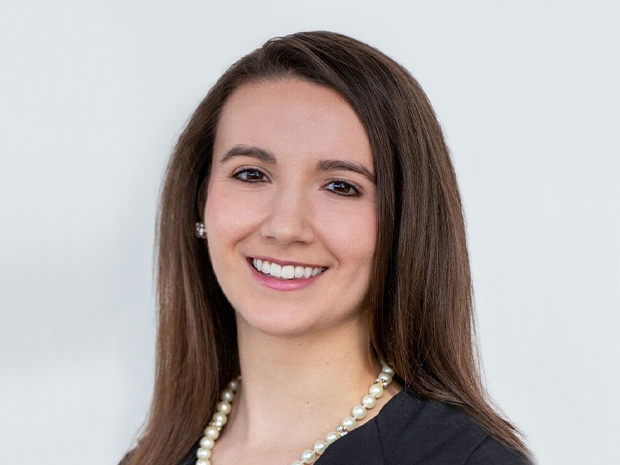Executive summary: Interim plan correction guidance interpreting SECURE 2.0 Act section 305
The SECURE 2.0 Act of 2022 (Act) made changes to the Employee Plans Compliance Resolution System (EPCRS), currently outlined in Rev. Proc. 2021-30. EPCRS provides guidance to plan sponsors on how errors in qualified retirement plans, section 403(b) plans, SEPs and SIMPLE IRA plans can be corrected. SECURE 2.0 prescribed a number of changes to EPCRS, which are explained in this article: SECURE 2.0s legislative impact on plan corrections. The Act requires Rev. Proc. 2021-30 to be updated by Dec. 29, 2024.
Given the length of time, before Rev. Proc. 2021-30 must be updated, interim guidance has been desired by practitioners and plan sponsors alike. IRS Notice 2023-43 (Notice) provides some clarity regarding the EPCRS changes specifically under Act section 305 related to Eligible Inadvertent Failures and how the changes should be applied until Rev. Proc. 2021-30 is updated.
New guidance from IRS on correction of errors in qualified retirement plans
Treatment of Eligible Inadvertent Failures
An Eligible Inadvertent Failure is defined in section 305(e) of the Act as a failure that occurs despite the existence of practices and procedures that satisfy the standards set forth in section 4.04 of Rev. Proc. 2021-30 (or similar standards in the case of an IRA). The Notice confirms that an Eligible Inadvertent Failure can be self-corrected before EPCRS is updated, even if the failure occurred prior to the Act’s date of enactment of Dec. 29, 2022. The Notice also confirmed that rather than self-correcting an Eligible Inadvertent Failure, a submission can be made to the Voluntary Correction Program.
To self-correct, the following conditions must be satisfied:
1. The failure cannot have been identified by the IRS prior to actions demonstrating a specific commitment by the plan sponsor to implement self-correction. A failure is considered to be identified by the IRS (see Rev. Proc. 2021-30 section 5.08) when the plan is under an Employee Plans examination or a criminal investigation or the plan sponsor is under an Exempt Organizations examination.
All relevant facts and circumstances are considered to determine if a specific commitment has been made, but generally the sponsor’s actions must demonstrate the correction is being actively pursued. Completion of an annual compliance audit or a statement of intent to correct would not demonstrate a specific commitment to self-correct.
The Notice clarified that if the failure is insignificant per the current provisions of Rev. Proc. 2021-30 section 8.02, the failure can be self-corrected even if discovered on exam.
2. The self-correction is completed within a reasonable period after being identified by the plan sponsor.
Again, all relevant facts and circumstances are considered, however, except with respect to an employer eligibility failure, the failure will be considered corrected within a reasonable time if it is corrected by the last day of the 18th month following the plan sponsor’s discovery of the failure.
An employer eligibility failure is the adoption of a 401(k) or 403(b) plan by an employer that does not satisfy the requirements to establish such a plan. This failure will be considered corrected in a reasonable period only if all contributions to the plan cease as soon as reasonably practicable after the failure is identified and no later than the last day of the sixth month following identification.
3. The failure is not egregious (see Rev. Proc. 2021-30 section 4.10), does not directly or indirectly relate to an abusive tax avoidance transaction (see Rev. Proc. section 4.12(2)), and does not relate to the diversion or misuse of plan assets.
4. The self-correction method satisfies all the provisions applicable to self-correction set forth in Rev. Proc. 2021-30.
Recordkeeping requirements
There are no new IRS recordkeeping requirements with respect to the self-correction of an Eligible Inadvertent Failure. Current requirements continue to apply. A plan sponsor must be able to provide documentation substantiating the self-correction, such as documentation that:
- describes the failure, including years of occurrence, number of employees affected, and date identified;
- describes how the failure occurred and what established practices and procedures (formal or informal) reasonably designed to promote and facilitate compliance were in effect when the failure occurred;
- substantiates the correction method used and date of completion; and
- describes changes made to established practices and procedures to ensure the same failure will not recur.
Not all Eligible Inadvertent Failures can be corrected under the Notice
There are some Eligible Inadvertent Failures which cannot be self-corrected until Rev. Proc. 2021-30 is updated. These include, but are not limited to, the failure to adopt a written plan document, a significant failure in a terminated plan, and excess contributions to a SEP or SIMPLE IRA corrected by permitting excess contributions to remain in the affected IRA. Refer to Q&A-2 of the Notice for a full listing. Additionally, IRA custodians may not correct an Eligible Inadvertent Failure before Rev. Proc. 2021-30 is updated.
Takeaway
Even though the Notice is not intended to provide comprehensive guidance with respect to section 305 of the Act, it does provide the IRS’ interim interpretation which will assist plan sponsors in applying the new rules in good faith. Plan sponsors should be particularly diligent in documenting and maintaining records related to the self-correction process, in part to be able to prove when the process began in the event of an IRS examination. Additionally, appropriate documentation will demonstrate the self-correction was completed during the 18-month safe harbor period (six month for an employer eligibility failure).




